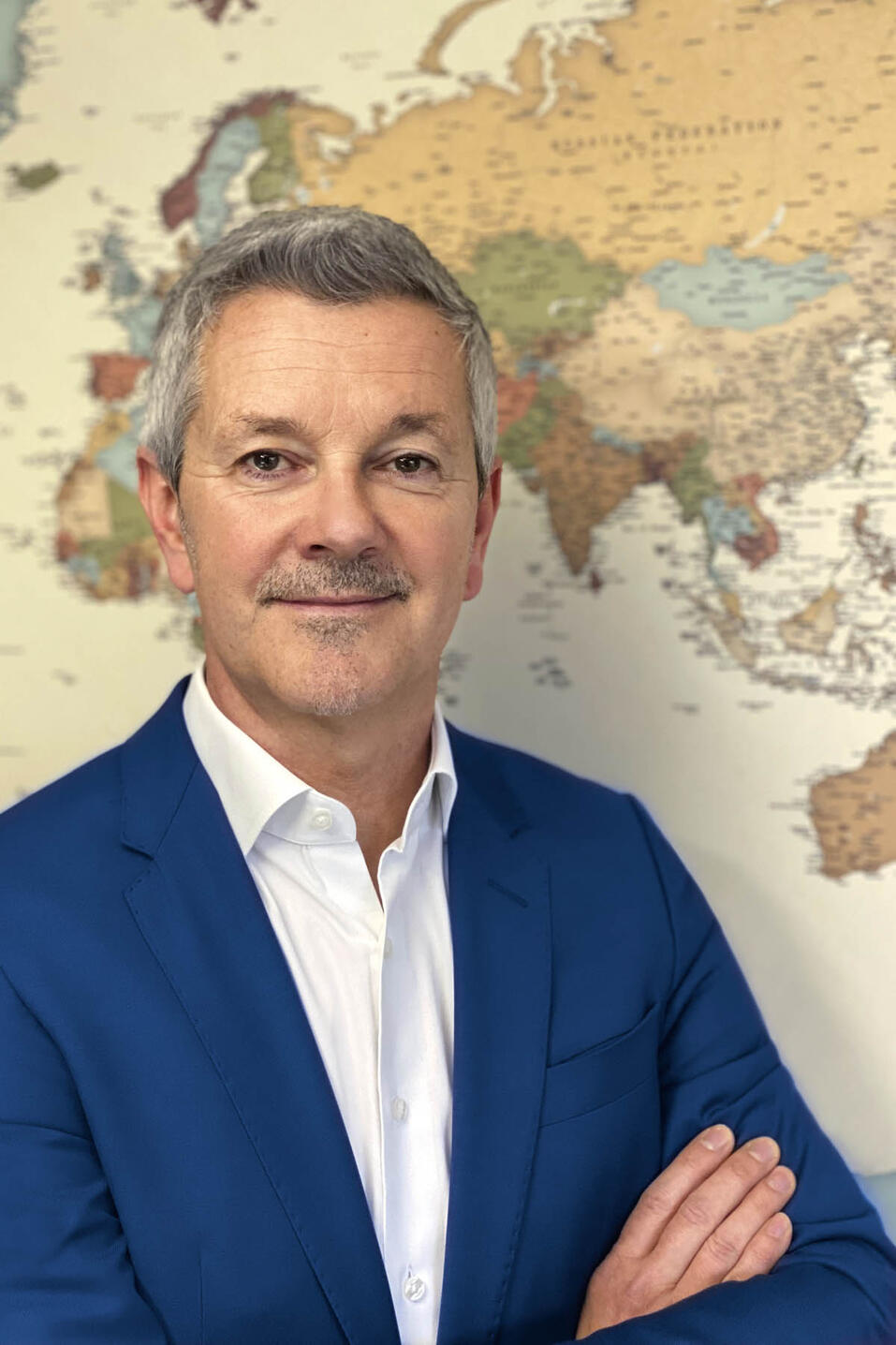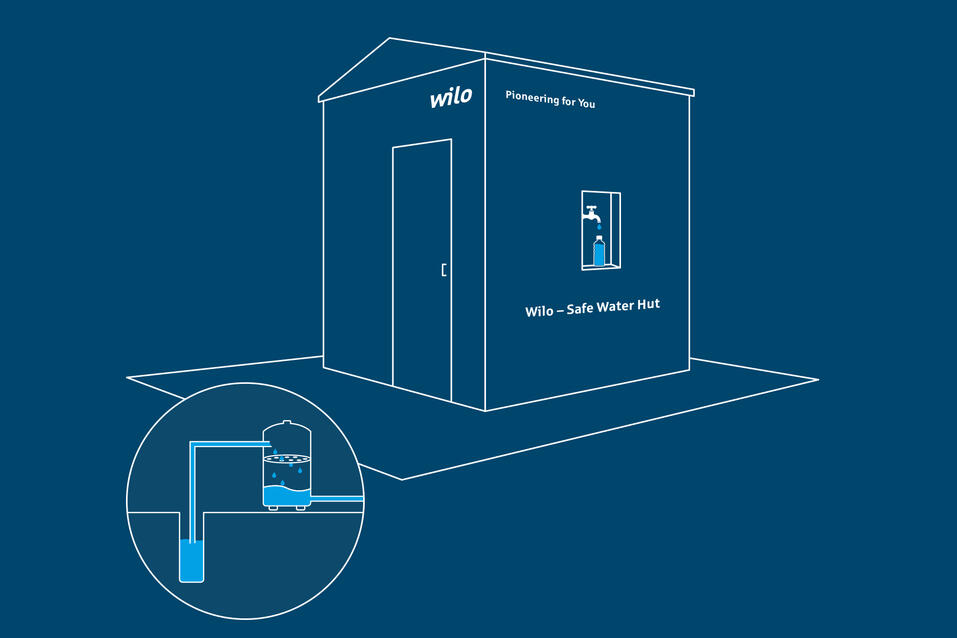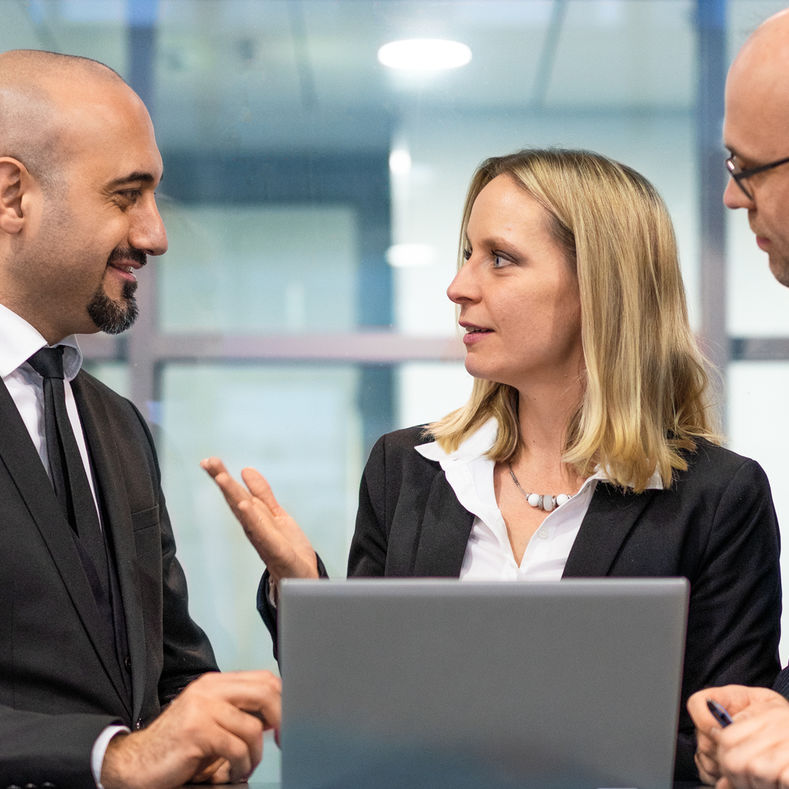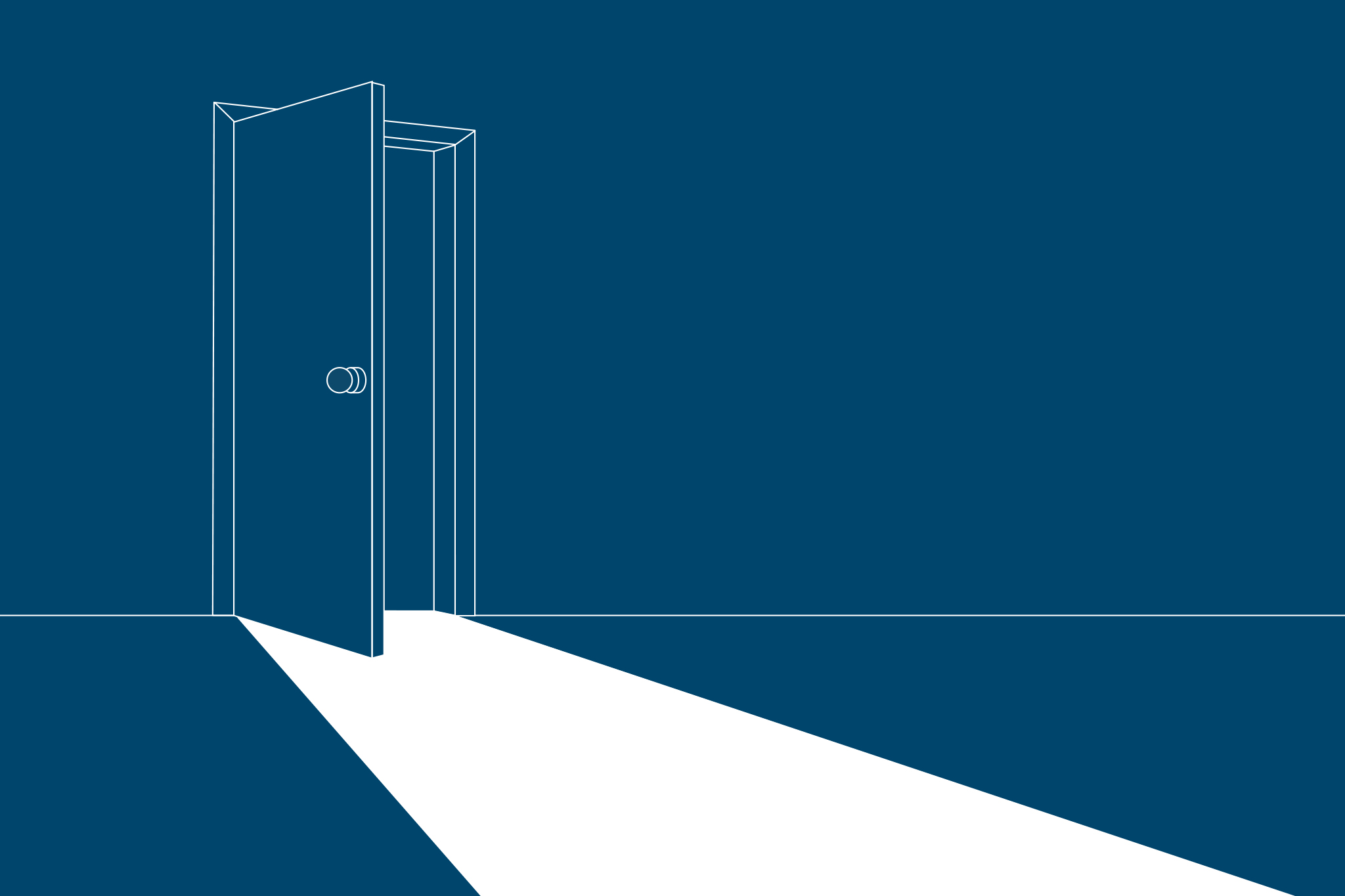Opening doors
Ralf Schuster's job at Helaba is to feed ideas, information and contact details to companies striving to gain a footing in regions remote from the major markets. Armed with a natural feel for people and markets, he cultivates a global network and finds open doors where others meet dead ends.
Support to access markets in non-OECD countries
Helaba may have given him the official title of Vice-President Correspondent Banking, but Schuster could equally well be described as the Bank's geopolitical guru, for geopolitics lies at the heart of what he does. "The critical question," he explains, "is what influence do geographical factors have on politics, society and, most importantly, the markets."

„My neutrality enables me to open doors for international deals that may well not happen otherwise. That breathes life into the market and opens up investment opportunities for companies..“
Ralf Schuster
Thinking in networks
Let's say a start-up or SME wants to become active in Asia, Africa or Central and Latin America. Where do they begin? "There are conventional starting points of course – trade associations and the local authorities, for example," Schuster explains. Often, however, newcomers putting themselves forwards like this for the first time find progress is not so easily made. "What companies really need," he says, "are key contacts." Schuster's job is to work with the companies to track down these key contacts – which could be local banks for finance, for example, or regional real estate, recycling or construction companies – and set the dialogue running. "These contacts we're talking about are not names in a database that I can simply retrieve and share at the touch of a button," Schuster points out. The world, he adds, is much too big for that. "It is more a case of listening carefully to the question and then building up a picture in my mind's eye of the first few nodes that might be worth connecting to start weaving the network."
That is just what happened in 2019 when Schuster presented a geopolitics lecture at the invitation of S-International Westfalen, one of Germany's largest Sparkassen alliances for international business with corporate customers. The audience included Kirsten Kaup, Director Group Treasury at pump technology specialist Wilo. This fast-growing company from Dortmund, which has annual sales of approximately EUR 1.5 billion, is highly committed to its sustainability strategy, which earned it the German Sustainability Award and inclusion in the UN's "50 Sustainability & Climate Leaders" initiative in 2020. Developing innovative pumps to keep water moving requires smart thinking and action that minimises consumption of natural resources. Sustainability is accordingly one of the cornerstones of Wilo's corporate culture. One of the company's objectives is to help 100 million people gain better access to clean water by 2025.
How does it intend to do this? One part of the solution are its fully automated Wilo Water Kiosks: small local water treatment solutions that enable people in arid areas to obtain affordable drinking water quickly and safely. "The Water Kiosk is a complex piece of technology," says Gero Böhmer, whose remit as Group Director Government & Public Affairs at Wilo includes international public sector projects. The raw water, he explains, has to be filtered through membranes to make it clean and safe – and then kept that way. "But finding technical solutions is what we are best at. That's our core business," Böhmer continues. Working out how to put its Water Kiosks into operation in countries that need them was a challenge of a different order entirely.
„Finding technical solutions is what we are best at. What we really needed help with was the question of how to put our Water Kiosks into operation in countries that need them.“
Gero Böhmer
Group Director Government & Public Affairs, Wilo Group
2025
Bis 2025 will Wilo 100 Millionen Menschen einen besseren Zugang zu sauberem Wasser ermöglichen.
Water Kiosks in Ethiopia
This is where Ralf Schuster and his networks came in: the product was ready and it was time to work together to track down local partners – including banks. "Not just for finance," Schuster stresses, "but also as a partner for operation." Ethiopia was identified as a suitable market on the basis of its huge demand, which has only been exacerbated by ever tougher dry seasons due to climate change. The idea was to attach a few Water Kiosks to bank branches, an arrangement that would have several big advantages. "First of all, banks have security protection so the kiosks would be safe," Ralf Schuster explains. "Also, water purchases can be paid for by bank card, which helps the partner bank to gain new customers. And these new customers might then make use of the bank for microloans to support entrepreneurial ventures that in turn help to build up the local economy."
Ralf Schuster is always thinking one step ahead. Follow his train of thought for a while and one thing in particular stands out: for him, the world is all about possibilities – possibilities, as that big map behind him emphasises, on a vast scale just waiting to be unlocked.
Clean water for thousands
Provide access to clean water for as many people as possible – an objective that in rural regions of Ethiopia has a societal impact as well as a health impact. Women and children in many villages have to travel long distances to fetch water for the family. The men hold down jobs, but women's ability to be economically active is limited and children miss out on school and their chance to gain an education, so the arrival of a Water Kiosk or the smaller "Water ATM" in an area can not only help to protect people from serious diseases but also improve their broader life opportunities.
The "Safe Water Hut" developed by Wilo is essentially a container packed with filters that turn raw water into clean drinking water. A window in one side dispenses the treated water to customers, who can pay using an RFID-based card (the cashless process enhances security). The price per litre is below the figure recommended by the UN. No charge is made for the resource itself; the price just reflects the technology necessary to filter the water and keep it clean. The income generated by the facilities enables their local operators to complete maintenance and repair work independently, which helps to extend the life of the systems. Once the initial cost has been recovered, further income can be invested in additional Water Kiosks. This means that the project helps to fuel the development of a permanent local water economy. Wilo Water Kiosks come in different sizes designed to supply clean drinking water for from 100 to 1,000 families. An initial pilot project with a Water Kiosk has already been set up in Ghana and the first tranche of units for Ethiopia should be up and running before the end of 2021.

The Water Kiosk stores raw water and filters it to produce clean drinking water. The treated water is dispensed through a window.
Further Stories
 Role model: Anas Darkoushy
Role model: Anas DarkoushyRole model: Anas Darkoushy
In 2015 he fled Syria for Germany. Today he combines his duties as a parent with a job at Helaba. His story is encouraging.

